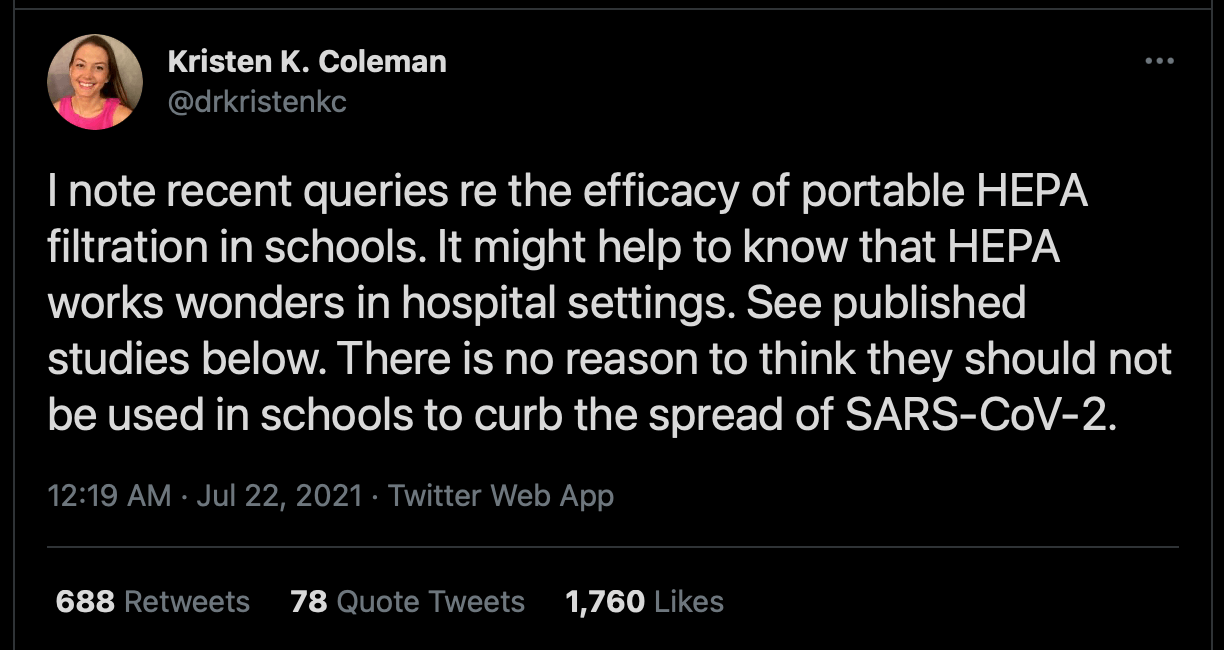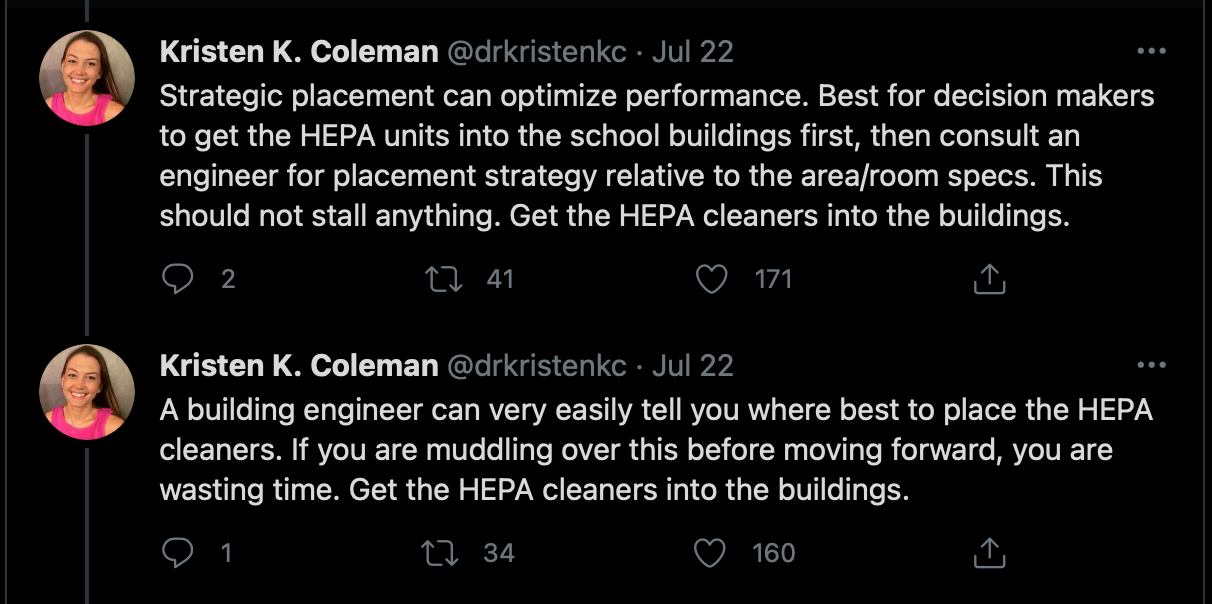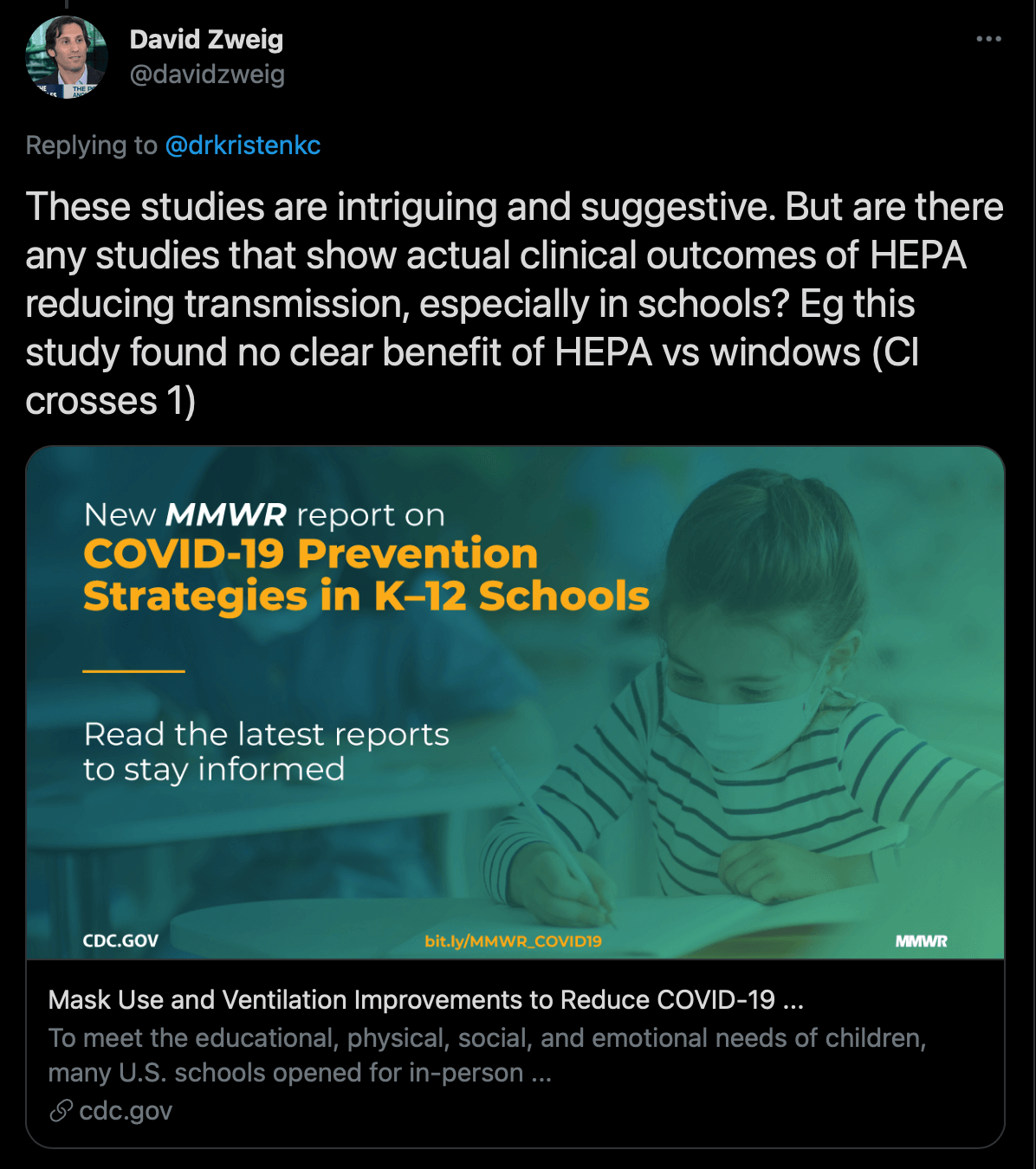What Public Expertise Looks Like: Kristen K. Coleman
In the time of COVID, should we wait for the perfect clinical study demonstrating whether portable HEPA filtration could reduce transmission of the COVID-19 virus specifically in schools?
Or should we apply what we already know from other settings and act?
Kristen K. Coleman (a senior research fellow at Duke Medical School’s Programme in Emerging Infectious Disease) threads that we already know enough about HEPA filtration of the virus in hospital settings to be confident enough it will also work in schools:
She goes on to summarize that knowledge, which is impressive: Properly placed HEPA filtration can clear a room of aerosols within 5.5 minutes, and a combination of HEPA air cleaners and universal masking reduced exposure for patients by up to 90%.
Then Coleman takes the step every public expert (but few researchers who aren’t also public experts) would: She tells decision makers they should take action now based on the best evidence available:
Public experts have calls to action — none clearer than “Get the HEPA cleaners into the buildings.”
Later in the thread, Coleman has a conversation with David Zweig, a journalist and book author. Zweig asks the classic scientist question
and goes on to argue that the CDC study he’s referring to doesn’t show a statistically significant difference in lowering risk of catching the COVID-19 virus between a) using HEPA plus open windows for ventilation vs. b) open windows for ventilation alone. Implication: Just open the windows.
Coleman’s counter: The sample size for schools only using HEPA in the study is too small — just 16 schools. “You can’t ask schools to stop using ventilation just so you can test the effect of HEPA only,” she tweets. And HEPA plus ventilation had, as she puts it, a stronger effect with a stronger degree of certainty. Here’s the clincher:
The main goal is to control a pandemic, not design a study.
So get the HEPA cleaners into the buildings!
Public experts don’t wait to intervene until they have the perfectly designed study.
They apply the evidence we already have when it’s already rigorous and robust enough to make the world better.







